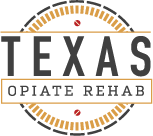
Opiate Addiction Symptoms
Opiates are found in common prescription painkillers. They have a short half-life in your body, and your brain builds tolerance to them quickly, meaning doses become less effective in a short amount of time. Extended use leads to dependency very quickly. Symptoms of opiate use may present as any of the following:
- Erratic behavior
- Mood swings
- Irritability
- Manic, hyper behavior, and depression
- Acting intoxicated
- Increased alcohol consumption
- Changes in appetite
- Changes in sleep
- Taking more painkillers than prescribed
- Drug-seeking behavior
Opiate effects on the brain act like any other addiction, leading people to lie, manipulate, and often exploit loved ones for money or access to more opiates. They are also often a gateway drug to other substances like heroin.
Detoxing from Opiates
The effects of opiate withdrawal are too intense to detox and recover from alone at home. Inpatient and residential detox programs offer tiered levels of support for the physical, emotional, and psychological effects of withdrawal. Opiate detox center programs often offer medically assisted support which replaces opiates with another controlled drug under medical supervision. These drugs are monitored in a residential facility, and their dose is reduced slowly to gradually reduce the side effects of withdrawal and prevent relapse or other medical complications. Because of their half-life, opiate withdrawal does not last long. Still, inpatient care at detox facilities can help patients address the cause of addiction and rebuild their lives without temptation or access to more drugs.
Finding Opiate Detox Centers
Support systems across the state can help you or a loved one struggling with opiate addiction. If you suspect someone in your life needs immediate help in their detox, is a danger to themselves or others, call your doctor or emergency services right away. Don’t wait for a bed in a residential detox facility to become available. Professional rehabs offer local, medically assisted detox and rehabilitation.
Opiate detox is safer, easier, and more effective in a residential detox facility. Residential programs can also provide therapy and community aid in recovery. For most, a residential detox program helps repair family relationships, heal the root causes of addiction, and find solidarity with others in recovery who are looking to put sobriety at the center of their lives.
Don’t Wait, Begin Opiate Detox Today
If you suspect opiate dependence in your family or struggle with prescription painkillers, know it isn’t your fault. Opiate drugs are formulated to overpower natural chemicals in the brain, making them incredibly addictive. If you or someone you love is attempting to quit opiates cold turkey and detox at home, today is the day to find a facility near you. Professional rehabs in Texas provide safe, effective, holistic support for opiate dependency and other addictions. While looking for facilities, trust doctor and therapist recommendations and resources on local government websites over places claiming addiction “cures.” Opiate detox may be quick, but addiction recovery is a long road. Get the help you need today.
